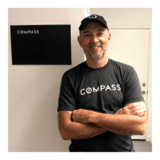Log in or create a free Rosenverse account to watch this video.
Log in Create free account100s of community videos are available to free members. Conference talks are generally available to Gold members.
Summary
There’s a lot to consider if you’re going to do accessibility research effectively and respectfully. Using examples from previous user research and accessibility studies she’s conducted throughout her career, Rebecca shares lessons learned and guidance to consider when planning and executing remote usability testing with participants with disabilities, including the four specific disability categories: visual, motor, hearing and cognitive.
Key Insights
-
•
Over one billion people worldwide have long-term disabilities, making digital accessibility critical.
-
•
Accessibility research must consider a wide range of disabilities including hidden ones like mental health and learning difficulties.
-
•
Pre-research calls increase participant comfort by tailoring communication and understanding assistive technology use.
-
•
Recruitment for accessibility studies takes longer and requires specificity about disability types and assistive technologies.
-
•
External recruitment vendors like AbilityNet, Fable, and Barrier Break specialize in recruiting participants with disabilities.
-
•
Many people with disabilities are motivated to participate if the product is relevant to their daily lives and the research aims to improve accessibility.
-
•
Remote usability tools often lack full accessibility and scheduling tools are particularly deficient for participants with disabilities.
-
•
Screen readers vary greatly in speed and customization; experienced users like Ben can read technical documents at 700 words per minute.
-
•
Communication adjustments such as live captioning and sign language interpreters require extra coordination in remote sessions.
-
•
Inclusive research involves focusing on product issues and accommodations rather than probing participants about their disabilities.
Notable Quotes
"Digital accessibility means making your online products usable by everyone regardless of how they access them."
"One in five people in the UK have a disability; it's about 1 in four in the US and 1 in 5 in Australia."
"People with disabilities are more willing to participate in studies if it's to make a product they use more accessible."
"If your product isn’t accessible to assistive technology, participants might blame themselves instead of the product."
"Hidden disabilities like mental health and ADHD often cause people not to disclose their needs, so anonymity is key."
"Using recruitment vendors requires very detailed and specific descriptions of accessibility needs for success."
"There’s no fully accessible scheduling tool for recruiting participants with access needs; much manual effort is involved."
"When communicating with sign language interpreters remotely, remember to address the participant directly, not the interpreter."
"Some participants prefer tasks to be direct and focused, without lengthy scenario explanations."
"Inclusive research means framing questions about how the product could be improved, not about the user’s disability."
Or choose a question:
















More Videos

"How ready are you to sense and respond to the patterns of emergence in your organization?"
Dave MaloufTheme 3: Introduction and Provocation
January 8, 2024

"Different people communicate in different ways, and understanding those ways gives you the key to convincing them."
Dalia El-ShimySo You've Got a Seat at the Table. Now What?
March 31, 2020

"People form habits on software that become efficient, so they naturally resist changes that force new habits."
Paula BachImproving Legacy Software: How Much Better Does it Have to Be?
March 11, 2022

"IBM pivoted its design education program from in person to online very quickly and successfully."
Lada GorlenkoTheme 2 Intro
June 9, 2022

"Every board member can interpret an NPS score differently depending on their role and responsibilities."
Landon BarnesAre My Research Findings Actually Meaningful?
March 10, 2022

"If you have a realistic roadmap and action plan, you can identify what one thing you can do now to move UX maturity forward."
Susan WeinschenkEvaluating the Maturity of UX in Your Organization
January 15, 2020

"Businesses are stripping down to skeleton crews and canceling anything that doesn't directly drive revenue."
Jon FukudaTheme One Intro
October 2, 2023

"Inclusion and accessibility are really core and important to what we do in design ops."
Saara Kamppari-MillerTheme Three Intro
October 4, 2023

"There’s strength in numbers, and together you might get that very large stone over the top of that very steep hill."
Louis RosenfeldWelcome / Housekeeping
June 6, 2023
















